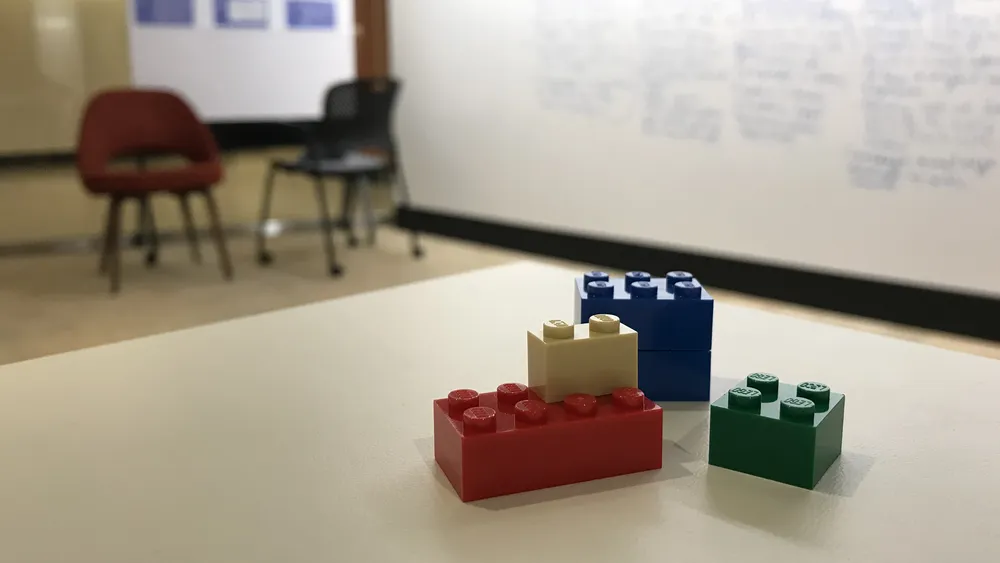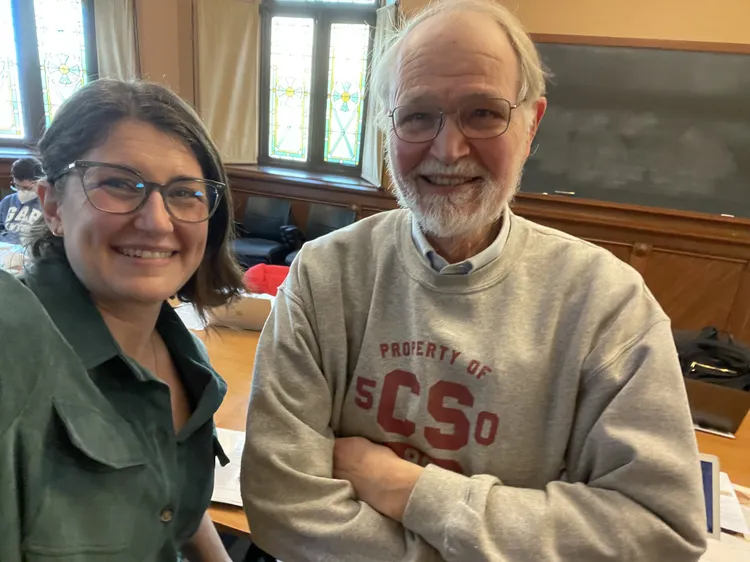Literature as Data as a Trans-Disciplinary Experiment
3 May 2023
Team taught by Meredith Martin and Brian Kernighan, HUM 307 emerged as an idea for a truly cross-disciplinary course that sought to explore the intersection of humanities and computational methods.

Team taught by Meredith Martin and Brian Kernighan, HUM 307 emerged as an idea for a truly cross-disciplinary course that sought to explore the intersection of humanities and computational methods. Martin, CDH faculty director and associate professor of English, and Kernighan, William O. Baker *39 Professor in Computer Science, have often worked together on initiatives for the CDH and their respective expertise in English literature and computer science make this an obvious and powerful pairing for a co-taught course.

Meredith Martin and Brian Kernighan
The students in this class were drawn from a wide range of disciplines and it was important for Martin and Kernighan to provide learning goals that were balanced between humanities and STEM without privileging one over the other. The core principles of the course were to perform quantitative analysis via Python on qualitative data like poetry or cultural materials. This approach kept most of the students out of their comfort zone, some were adept at executing code, while others were well-trained in close-reading literature, but few were skilled in both things.
Kernighan and Martin started their course by highlighting the similarities between the sets of skills, an approach that resonated with their students who had not considered this juxtaposition quite in this way. As one student explained: “To me, both computers and sonnets try to communicate through a very specific type of language, relying on the skill of people who have taken the time to master and produce that language. Code and poetry have both creative and analytical elements that allow their forms to create expression.”
CDH members offered their support to the variety of expertise among students. Sierra Eckert, Perkins Postdoctoral Fellow, and Ryan Heuser, Research Software Engineer, fielded questions from students about computational text analysis and structuring datasets, while Emily McGinn, Curriculum Specialist, worked with students to form research questions from their data.
This course created an undergraduate enthusiasm for working across, and beyond, disciplines. The collaborative mode modeled by Martin and Kernighan has inspired students to implement the same strategy in their own work. In their class reflection, one student noted that utilizing the skills of the entire group has been a revelation: “Typically, I have absorbed readings and written papers in response, all solitary activities. Therefore, I appreciated having the opportunity to engage with my peers and tackle the homework together…I would love to work on more assignments with my classmates and learn from their insights about both coding and the humanities.”
Another mentioned that he was “fascinated by the collaboration workflow of researchers in the digital humanities” and wanted to “learn more about how programmers and humanists interact in the process of developing projects and ideas. The dynamic between Professor Kernighan and Professor Martin is really a treasure, and I hope that this is commonplace in the field.”
As concentrations at Princeton look toward creating new minors and fostering this kind of transdisciplinary work, HUM 307 stands as a model for future team taught classes that will create a data savvy and adaptable student body.
For more information about the specifics of the class visit hum307.com.